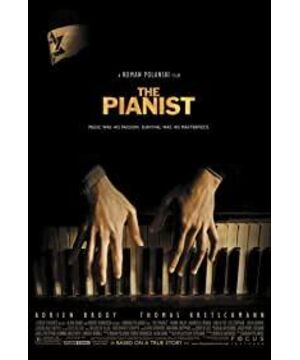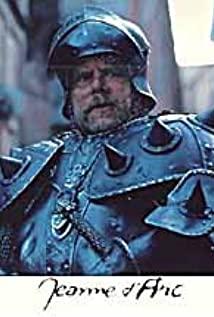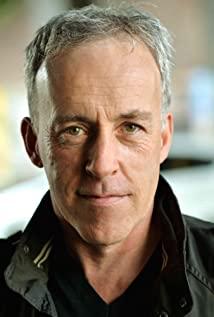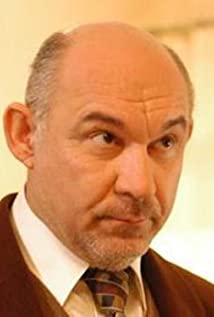"The Pianist" is directed by Roman Polanski and adapted from the autobiography of Polish Jewish composer and pianist Schipelman , describing the story of a Polish Jewish pianist who struggled to survive during World War II. It is worth mentioning that the director of this film, Roman Polanski, experienced those bloody years when he was young, so throughout the film, he was very restrained and almost used line drawing techniques, except for the piano piece on the ruins, There is a relatively large emotional catharsis, and in other places, there is hardly any too much sensationalism.
The story begins with the German invasion of Warsaw (the capital of Poland) in 1939, and the Jewish nightmare officially begins. When I first watched this movie, I thought about why the Germans hated Jews so much, but they were obviously more tolerant of Poles. From the initial discrimination (the Germans in the film do not allow Jews to enter cafes and parks), to humiliation (the male protagonist's father was beaten for not salute the Nazi officer), to confinement (the Germans established a warsaw in Warsaw) A ghetto, where all the Jews were driven), and even developed into arbitrary massacres for no reason. What is the reason why they exterminated the Jews in such a gradual manner? Later, I checked a lot of materials, I think, probably can be interpreted from two aspects.
The first is about the historical dimension. Germans and Jews have different religious beliefs, Germans believe in Christianity, while Jews believe in Judaism. The Germans believed in Jesus and believed that the Jews were the ones who betrayed Jesus. Secondly, the Jews were very good at doing business. During the First World War, they even made a lot of money in Germany because of the reselling of arms, but they did not help the German government to tide over the difficulties together. When the milk supply was in short supply, the Jewish merchants would rather dump the milk than sell it to the poor German poor. This undoubtedly made the people hate the Jews, and Hitler just made a fuss about it. Third, it was just in time for the economic crisis in Germany at that time. Many poor German people had a hatred for the Jews, so there is a scene in the movie where a German officer insulted the Jews and shouted: "You Jews are not very good at doing business. !"
Then why is the German approach to the Jews a gradual process? I think this may involve a psychological knowledge. In 1974, Italian artist Marina Abramović once conducted a psychological experiment. She paralyzed her body, but deliberately kept her brain awake, and then handed over her body to a group of strangers. In order to conduct a more straightforward and comprehensive observation, she also signed a legal document with no consequences. She also prepared tools for these people: lipstick, flowers, shackles, knives, and even a pistol.
At first, many people acted very reserved, and when the first person confirmed that she was indeed paralyzed, people began to put lipstick on her and perform lesser pranks. Then someone started hurting her body, someone ripped her clothes and took pictures of her naked, and someone put a loaded pistol on her head.
There were also some people who couldn't bear to hurt her, but they didn't step forward to stop her. This experiment lasted about 6 hours. Six hours later, the perpetrators fled.
The name of this experiment is "Rhythm 0". If you are interested, you can check it out on Baidu. It is a real experiment. This experiment shows the society how tyrannical human beings can do without legal and moral constraints, and it shows the ugliness of human nature to the fullest. Therefore, based on the long-term hatred of the Jews, and the lack of legal and moral constraints, the Germans initially insulted the Jews and finally developed into the massacre of 6 million Jewish people. In fact, it is also a manifestation of expanding the ugly side of human nature. . It's not like there is a saying that war can magnify human nature! This is the case with the massacres brought about by many wars in history.
I once asked my friend a question, and I said that after the male protagonist was rescued, although he was forced to help, he did leave his family behind and left alone. Later, knowing that the little friend was going to resist, he did not stay to face it together, but left. Is his behavior cowardly? I am glad that my friend is very open-minded. He said: "I don't think it is cowardice. It is easy to die in that kind of environment. Survival is a kind of strength."
Many people may not agree with this statement of friends. This is probably because outsiders do not understand the suffering of insiders, and people in peaceful times do not understand the cruelty of wars. There is a wonderful dialogue in the film that left a deep impression on me (this is May 1943, 4 years have passed since the Germans invaded Warsaw ) . in an apartment. Standing in the window of the apartment, you can just see the Jewish quarter. Once his friend Galina came to bring him food, and they stood at the window looking at the Jewish quarter, which had just experienced a gunpowder - his Jewish friend rebelled, and the rebellion lasted for a month, but it still failed Well, it goes without saying that they are all dead. The conversation goes like this:
Galina: 'I didn't expect them to last that long'
Pearman : 'I shouldn't have come out, I should have stayed there and fought them'
Galina: "Valley, stop, it's all over now." She was silent for a moment, then said, "You should be proud, it happened, God, they fought."
Spiegelman: "Yes, yes, the Germans too"
Galina: "They were shocked. They didn't expect it. No one expected it. The Jews fought back. Who would have thought?"
Shipelman lowered his head, resting his hands on his head lightly. He seemed tired: "Okay, is that any good?"
Galina looked at him in shock and said, "Valeh, you really surprise me, they die with dignity, that's the benefit. Do you know anything else? The Poles are about to wake up." The more she spoke, the more excited she became. , and even a little excited: "We are ready, we are going to fight, you know?"
In my opinion, the wonderful thing about this dialogue is that the protagonist Chipperman's sentence: "Okay, what's the benefit of that?" In Man's heart at that time, life was the most important thing. From 1939 to 1943, in the past four years, he experienced too many separations. At first, it was just compatriots he didn't know, friends around him, parents, sisters, younger brothers, and those who died because of the struggle. comrades. In fact, he also tried to resist, I don’t know if you still remember, when they first arrived in the Jewish special zone, he went to a man named Juhada (At that time, Juhada was planning how to resist the German Nazis with his friends) , ask him if there is anything he can do. But it was rejected by Qiuhada. "You're a good musician, not a strategist, you're too...musical," he said with a smile to Shipelman. Later, he also tried to find jobs for his family in the ghetto, thinking that a work permit would be their talisman. But it didn't take long for him to find that everything was in vain. So, I think, his words also revealed his sadness and regret for the death of his brother Zhan. He hoped that none of this had happened and that they were all alive and well.
The impact of war on the human mind is far beyond our imagination. Therefore, we can see people like Chipelman's mother who are reluctant to hear bad news and act like an ostrich; , hate the cruelty of the Germans, hate the ruthlessness of the United States and the French, and even hate the compatriots Jews who are cowardly as parasites; you can see the kind of Yezzak who was called to become a Jewish policeman in order to survive - to help the Germans maintain A person in the ghetto order, but a middle man who would secretly help his compatriots (he not only helped Shipelman many times, but also the one who saved his life)... Although later, with the help of various friends, Shipelman was helped time and time again. They escaped from death, but among those people, human nature is not all pure and kind. Antiques, for example, would raise money in the name of helping Sy Pelman (since Pearman is a famous pianist, so many people are willing to donate generously), but afterward, he stole the money.
By analyzing the behavior and characteristics of the above characters, I just want to express a point of view, that is, for the war that has passed for so many years, as outsiders, we should not blindly accuse who is right and who is wrong, or who is good and who is bad, but should, Have more sympathy. Just imagine how well we can do if we are in such an environment where we are so oppressed that we can't breathe, and our lives are in danger at any time.
The most talked about part in the whole film is probably the piano piece on the ruins. Many people think that the protagonist Sea Pearman’s passionate piano piece touched the German officer, so he escaped the disaster. In fact, this statement is not accurate. First of all, the character is real, his name is William Hosenfeld. Also, he helped many other Jews at the time (not everyone was a pianist), just like the German officers who helped Jews in Sindler's List (which is also based on true events). After the Jews who had been helped by him at that time were liberated, they tried to jointly plead with the Soviet officers, but unfortunately, the Soviet side did not agree, so he eventually died in a Russian prisoner of war camp in 1952.
I don’t know if you still remember, the German colonel, when signing the documents, the camera turned to his desktop, we can see a family photo on his desk, in the photo there are his three lovely children and His wife, I think, he must miss them. And the sentence he said to the male protagonist, "Thank God, don't thank me, he let us escape from death, that's why we believe in him" has long since become a classic line of the film. It is not surprising that such a caring and religious person would help the Jews. After the war, his widow published his diary, which recorded his disgust for the war, his longing for his family, and how he saved many Jews.
In fact, German Nazis are also human beings, and we should still look at them from the perspective of human beings. Maybe they once became as brutal as the devil for various reasons, but in the later stage of the war, after they calmed down slowly, they would still return to the human level. We must face up to the evil in human nature, and we cannot ignore the good in human nature. They have been fighting outside for many years, and they must be yearning for peace in their hearts. Those who really like war are actually those in power. We remember that war is to prevent history from repeating itself, rather than blindly living in the shadow of hatred. In fact, they later became Russian prisoners of war, and they also cycled the fate of the Jews. After all, they were just a bunch of poor people! ! ! !
The last thing I want to mention is the silent piano performance of the protagonist Sea Pearman during the war. I am really ashamed when I say this, because I swiped it twice and didn't notice that the piano performance was in the air with my fingers. Until that day, my friend was very excited to chat about this movie to me, he said: "I think that part is the most shocking part of the whole film". He even danced a little, and he continued: "The protagonist's friend reminded him not to make any noise before he walked out of the apartment, but I could understand how attractive the piano was to him at that time, so when he opened the piano case and took off the piano Bu, I was so nervous at that moment, I was both anticipating and frightening. It is no exaggeration to say that a heart raised in my throat. But when he actually bounced, I found that his fingers were hanging in the air, which was really shocking to me". My friend's words made me feel stunned, and I couldn't help but deeply admire the director's skill. The fingers are in the air, the music is flowing in the heart... the finishing touch without a doubt! ! ! !
Overall, this is a truly historical and heart-wrenching film. It can be said responsibly that it is by no means inferior to any film of the same type, including the well-known "Schindler's List". The film's leading actor, Adrien Brody, has solid acting skills , and interprets the gentle and elegant Sipearman's melancholy deeply. I even think that his highly recognizable and distinctive face, as well as the melancholy temperament emanating from his bones, are perfectly in line with the protagonist Shipilman's, just like our Chinese Chen Xiaoxu and Sister Lin , Sun Wukong is the same as Liu Xiaolingtong, Xiaolongnu and Li Ruotong. The film is also worthy of being a big winner of the 75th Academy Awards. It not only won the Best Director Award and the Best Adapted Screenplay Award, but also made Adrien Brody, who was only 29 years old, won the dream of all actors. Little golden man. Sincerely recommend it to everyone, and look forward to more excellent works from Adrien Brody!
View more about The Pianist reviews











